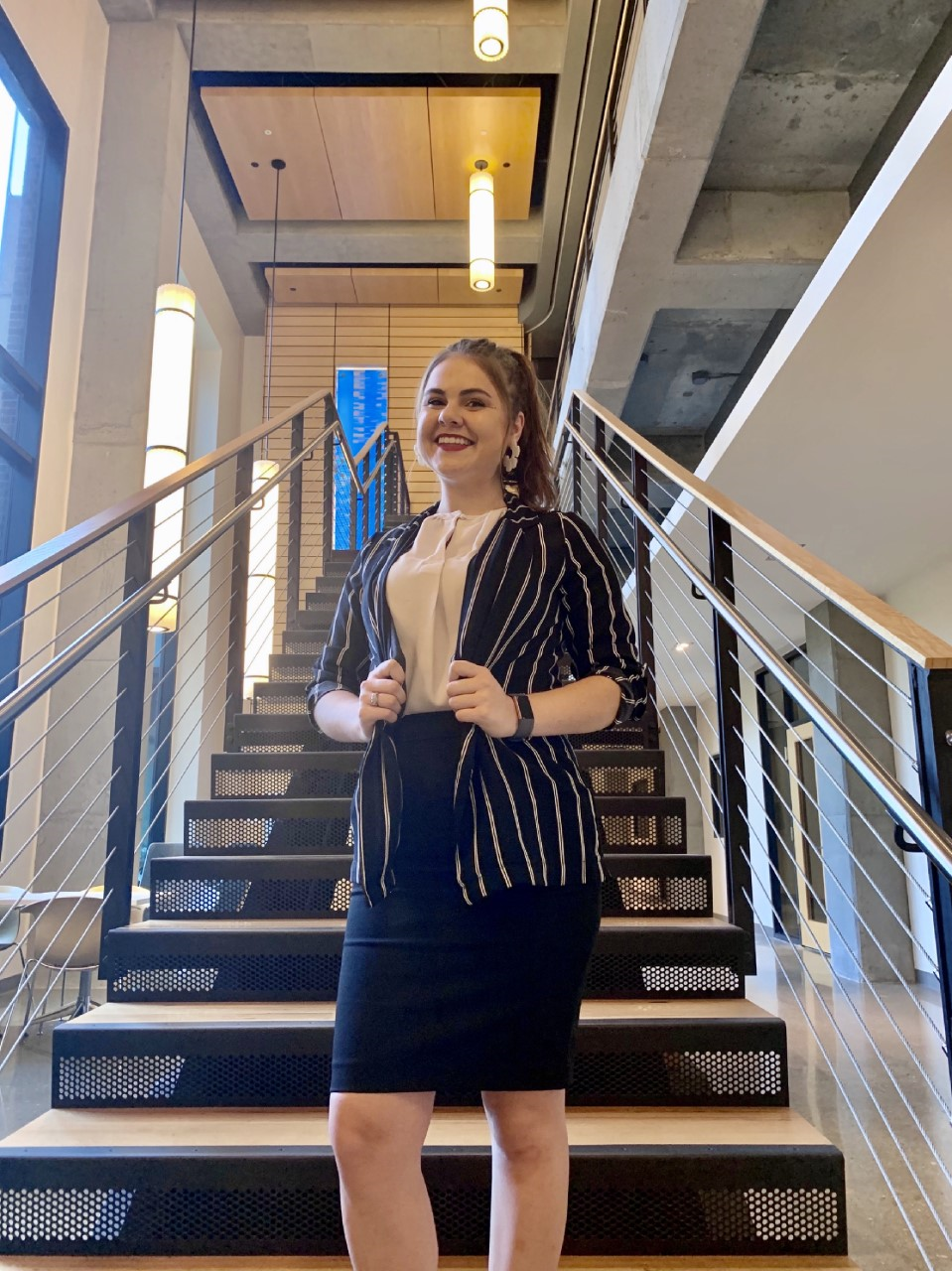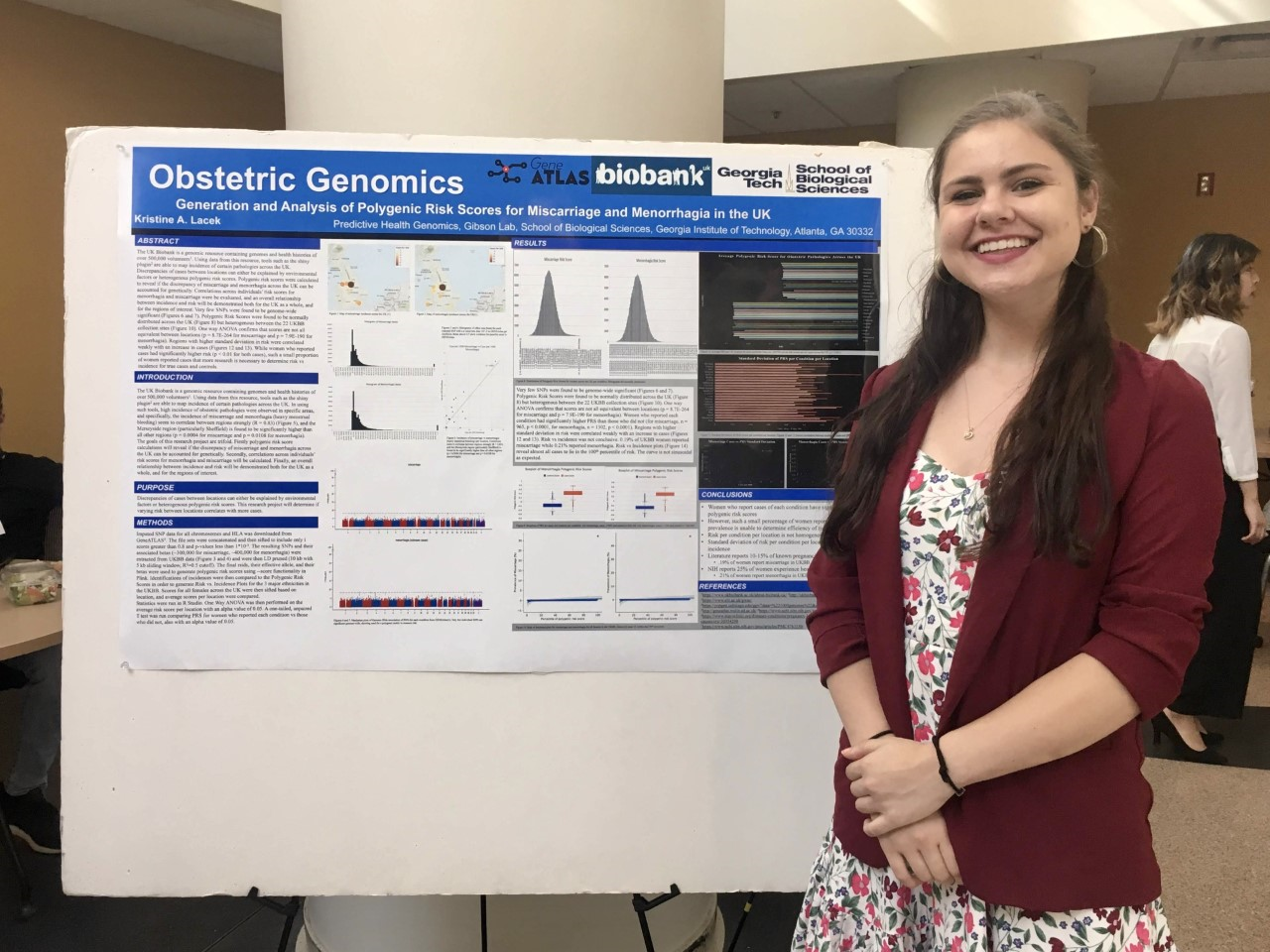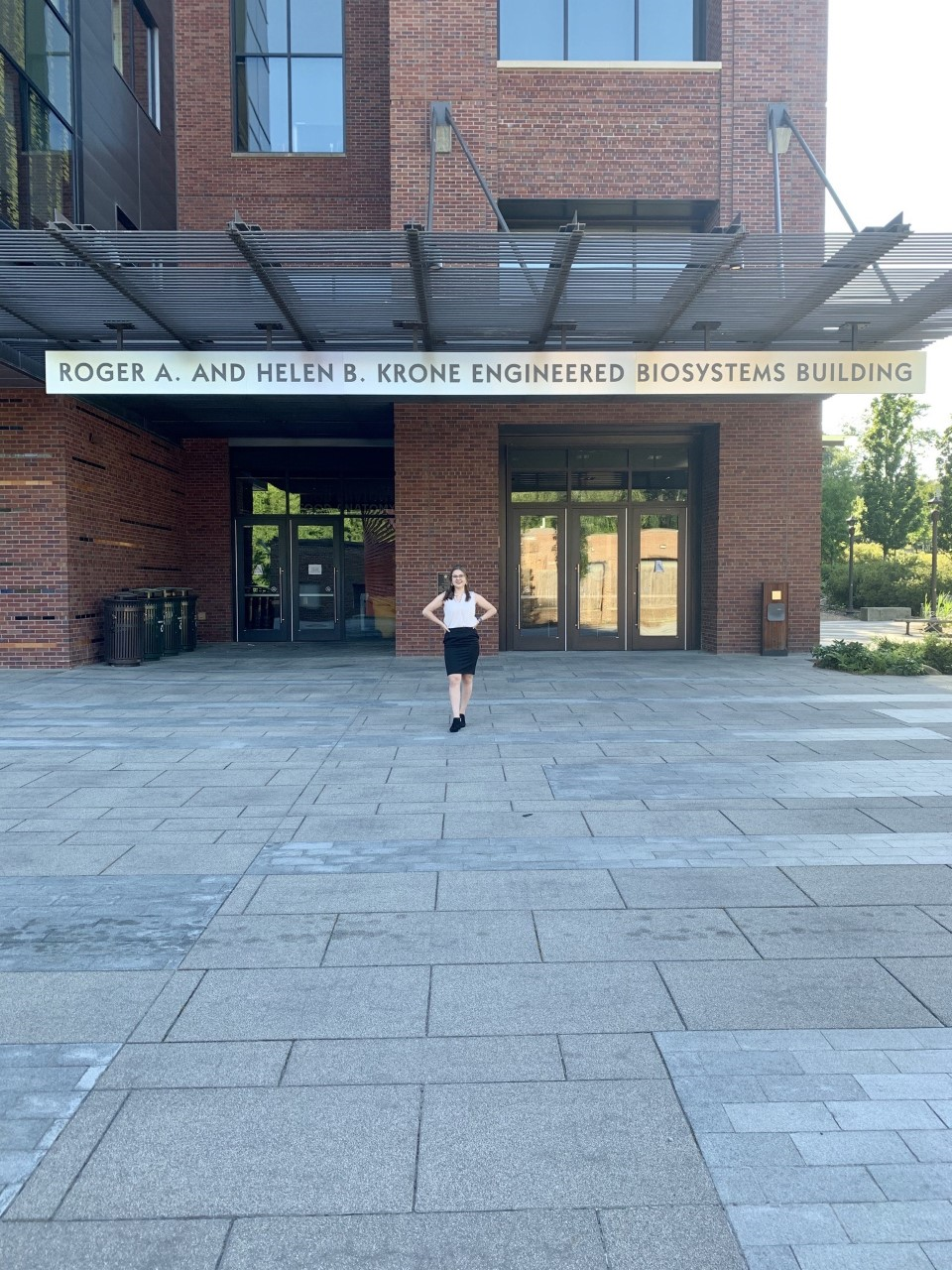Over four years and two degrees as a student at Georgia Tech, Kristine Lacek has seen many sides of research. As a recent graduate who now holds a bachelor’s degree in biology and a master’s in bioinformatics, Lacek reflects on the themes of collaboration and interdisciplinary discovery that prevailed throughout her education at the Institute.
During the fall semester of her freshman undergraduate year, Lacek met with Mindy Millard-Stafford, a professor in the School of Biological Sciences, to learn about the Exercise Physiology Lab. Millard-Stafford encouraged Lacek to enroll in her spring semester sports science class to learn about the lab’s work. After completing the course, Lacek knew it was exactly where she wanted to work. In the fall semester of her sophomore year, she joined Millard-Stafford's lab and began her research journey at Tech.
In the Exercise Physiology Lab, Lacek’s work focused on analyzing bone mineral density of members of the Georgia Tech Track & Field Team Distance Squad.
“I performed DEXA (bone densitometry) body scans and analyzed their diets to examine evidence for something called the ‘Male Athlete Triad,’” Lacek says. “Specifically, I found a significant link between insufficient caloric intake and depleted bone mineral density in the male runners.”
Her research won her a President’s Undergraduate Research Award that paid for a stipend, as well as travel to two national conferences where she presented her findings.
Upon beginning her master's degree, Lacek left the Exercise Physiology Lab to start work in the Bioinformatics Lab. There, under biology professor Greg Gibson, Lacek began researching the human genome and how it influences individual risk for medical conditions. Through this work, Lacek was soon met with a dilemma between nature and nurture influencing a human’s lifestyle.
“We grow up being told that it is always about nature versus nurture, or maybe nature plus nurture,” shares professor Gibson. “This becomes genetics plus environment when you get to college. But the reality is that who we are is a complex combination of the two."
Although this area of research was not directly related to her previous work, Lacek easily applied the skills she gained in the Exercise Physiology Lab to her new research environment. She credits Georgia Tech’s interdisciplinary environment for aiding her transition, noting that it helped make her comfortable in various laboratory settings.
In the Bioinformatics Lab, Lacek studied over half a million full human genomes to look for patterns in behaviors that influence a human’s risk for medical conditions. She calls herself a “dry researcher,” explaining that all her research occurred on the computer.
One of her most interesting discoveries was related to the relationship between fruit consumption and the incidence rate of inflammatory bowel disease, or IBD. When comparing individuals at high-risk of contracting the disease, she observed that those who consume below-average levels of fruit have an incidence rate of IBD that’s around twice as high as those who consume above-average levels of fruit.
Lacek shares that in tandem with these unique and exciting discoveries came a fair share of disappointments and challenges. One of Lacek’s greatest obstacles was finding accurate data to analyze.
“I once spent six months on a dataset that was giving me wonky results, only to discover that the mathematics used to generate the original data rendered them inappropriate for the work to which I was trying to apply them,” she says.
Other times, Lacek was stumped by the responses that individuals shared on self-reported data points.
“When reporting glasses of wine consumed per week, one individual reported 120,” says Lacek. “That’s more than 17 each day! Really makes you question how thoroughly volunteers read the questions.”
Despite setbacks and failures, Lacek says that the moments of success made every challenge worth it. And, at 21 years old, those research findings landed her a co-authorship on a paper in The Annual Review of Genetics.
“My research advisor told me that the results I generated were the first ever he’s seen confirming a theory he’s had for over ten years!” says Lacek.
Lacek shares that her most fulfilling personal moment happened while presenting preliminary findings to medical doctors at Emory University. As the doctors provided their ideas and feedback on the potential clinical applications of the findings, Lacek recognized that she had officially joined the professional research world.
“It really put all my work into a real-world perspective, beyond the code and statistics, impacting very real people,” says Lacek. “At that moment, every error message and crashed program was worth it.”
As a result of years of hard work and persistence, Lacek was recently awarded an Oak Ridge Institute for Science and Education (ORISE) Fellowship to begin work at the Centers for Disease Control, as a Bioinformatics Fellow in the Influenza Division. There, she will use the skills and knowledge from her time at Georgia Tech to analyze the human genome and the influenza genome to solve human health problems.
“As current events have shown, along with history, the more we can understand about a disease, the better equipped we are to combat it and save lives,” says Lacek.
Lacek shares that she’s especially grateful for the support of her advisors, Millard-Stafford in applied physiology and Gibson in bioinformatics, who have helped her achieve her career goals.
“They showed me that even ‘bad’ results can be good science,” says Lacek. “None of this would have been possible for me without the growth I underwent as an undergraduate and graduate researcher at Georgia Tech.”
By: Grace Pietkiewicz




Grace PietkiewiczCommunications AssistantCollege of Scienceskatiegracepz@gatech.edu
